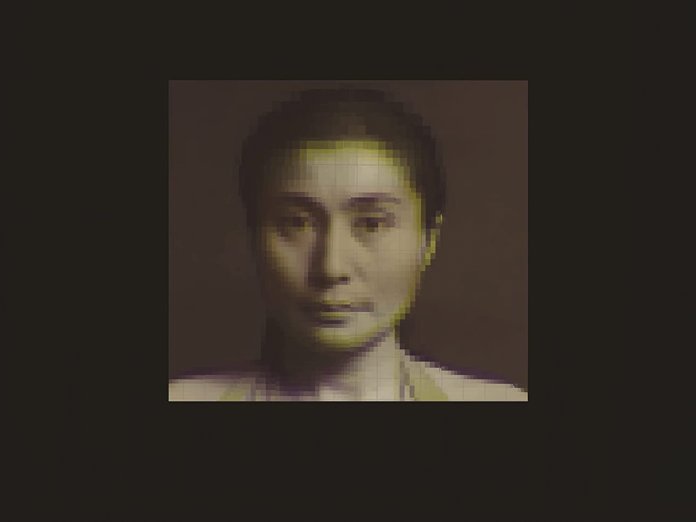Yoko Ono has long inhabited a particular space between her reputation as a musical figure and her actual work as a songwriter and performer. She’s a visible and influential woman in music who has often, unjustly, been relegated to the framework of her outsized male partner John Lennon, much like Linda McCartney or June Carter Cash. The wives of rock stars have often been seen in a diminished role – he the universe, she one of its twinkling stars – but at least most of them aren’t also blamed for breaking up The Beatles.
John Lennon’s belief in his wife was met with endless misogynistic reverberations, unsurprising in the hippie era and later, considering the conversative pivot of many of its boomers in the 1980s. And so, in the years since Lennon’s untimely death, Ono’s work has largely lived by the lips of insiders – the cultural cognoscenti who have namedropped the Plastic Ono Band and repressed her records – in our broader sonic consciousness. Her music, both groundbreaking and emotionally rich, has certainly been rediscovered and reappraised in the 21st century, but a look at social media comments around the Get Back film suggests there’s still a long way to go. The hope is that it may one day stand on its own in the wider reaches of society.
A pipe dream? Maybe. Here, though, is a new effort to test the theory, a tribute album envisioned and curated by Death Cab For Cutie’s Ben Gibbard. “For years, it has been my position that her songwriting has been criminally overlooked,” he said in a statement. So Gibbard gathered friends and peers to pay tribute, including Sharon Van Etten, David Byrne, Yo La Tengo, Stephin Merritt, The Flaming Lips and Japanese Breakfast, the proceeds in part benefitting the charity WhyHunger.
Opening with honourable offerings from Van Etten (“Toyboat”), and a rare collab between Yo La Tengo and Byrne (“Who Has Seen The Wind”), the record first truly sparkles under the vision of LA-based violinist and singer Sudan Archives, whose rhythmic, expansive and sultry rendition of “Dogtown”, from 1974’s A Story, is an aural delight, moving in unexpected yet captivating directions like Ono herself. Michelle Zauner of Japanese Breakfast strips back the maximalist pop song “Nobody Sees Me Like You Do”, transforming its loveworn sincerity into an unadorned solo piano ballad. “Born In A Prison”, from Some Time in New York City, is recast by US Girls as a twisted lullaby. Singer Meg Remy’s crystalline voice, at times sweet and creepy, conveys the song’s protest against societal conformity with childlike wonder.
And there are the moments where the material is so well-suited to a band’s particular template that Ono seems to all but live inside them. Raucous Bay Area quartet Deerhoof’s take on “No No No” adds a jolt of electricity, drawing from Ono’s experimental side, and applying its sonic niche, for a scratchy moment of burnt-synth avant-garde rock. “Mrs Lennon”, performed by The Flaming Lips, blows out the song’s haunting minimalism via the group’s signature kaleidoscope of instruments and effects, Wayne Coyne’s vocals floaty and vulnerable. Stephin Merritt’s take on the Plastic Ono Band’s “Listen, The Snow Is Falling” is an enticing amalgam of voice and synth, at once familiar and spectacular, like a streaking comet or a shooting star.
A cover’s worst offence is the feeling that it was crafted by rote, a straightahead rendering that adds no personal flair to the original song. Fortunately, Ocean Child largely avoids that lack of imagination. It’s almost as if Gibbard insisted upon it, given the diverse lineup of artists tasked with performing selections of Ono’s vast catalogue. And so it’s too bad that his offering, “Waiting For The Sunrise”, from Approximately Intimate Universe, is one of the album’s most lacklustre.
As a whole, however, Ocean Child is a noble pursuit. Even if it doesn’t push the needle for Ono in terms of broader cultural awareness, it reinforces the crucial idea that those who know, know.



